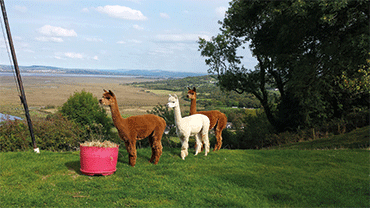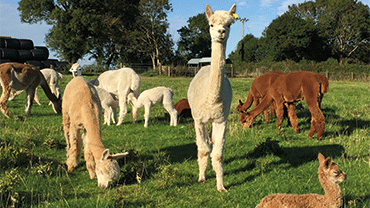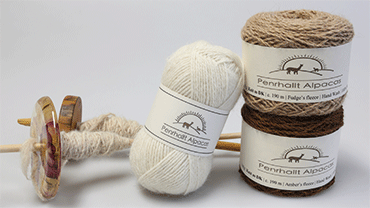Shopping Bag
0
- No products in the cart.



There are two breeds of Alpaca, both belonging to the Camelid family: Huacaya (Wah-ki-ah) and Suri. We mostly keep Huacaya.
The adult males are called Machos, and the babies are called Cria.
The females are pregnant for around 335 days. Being kind and considerate animals, they usually give birth in daylight hours.
There are 22 recognised colours of Alpaca wool, including white – fawn – grey – brown and black. Their fleece is hypo-allergenic and much softer than sheep wool.
Alpacas are quiet and calming animals, with a gentle nature and kind personality. They are easy to handle and with some training can be halter trained.
Alpacas have a strong herding instinct, so it’s essential that they live with at least 2 other Alpacas.
This information is purely advisory, and should not replace any information you may receive from your vet.
Alpaca Counter

